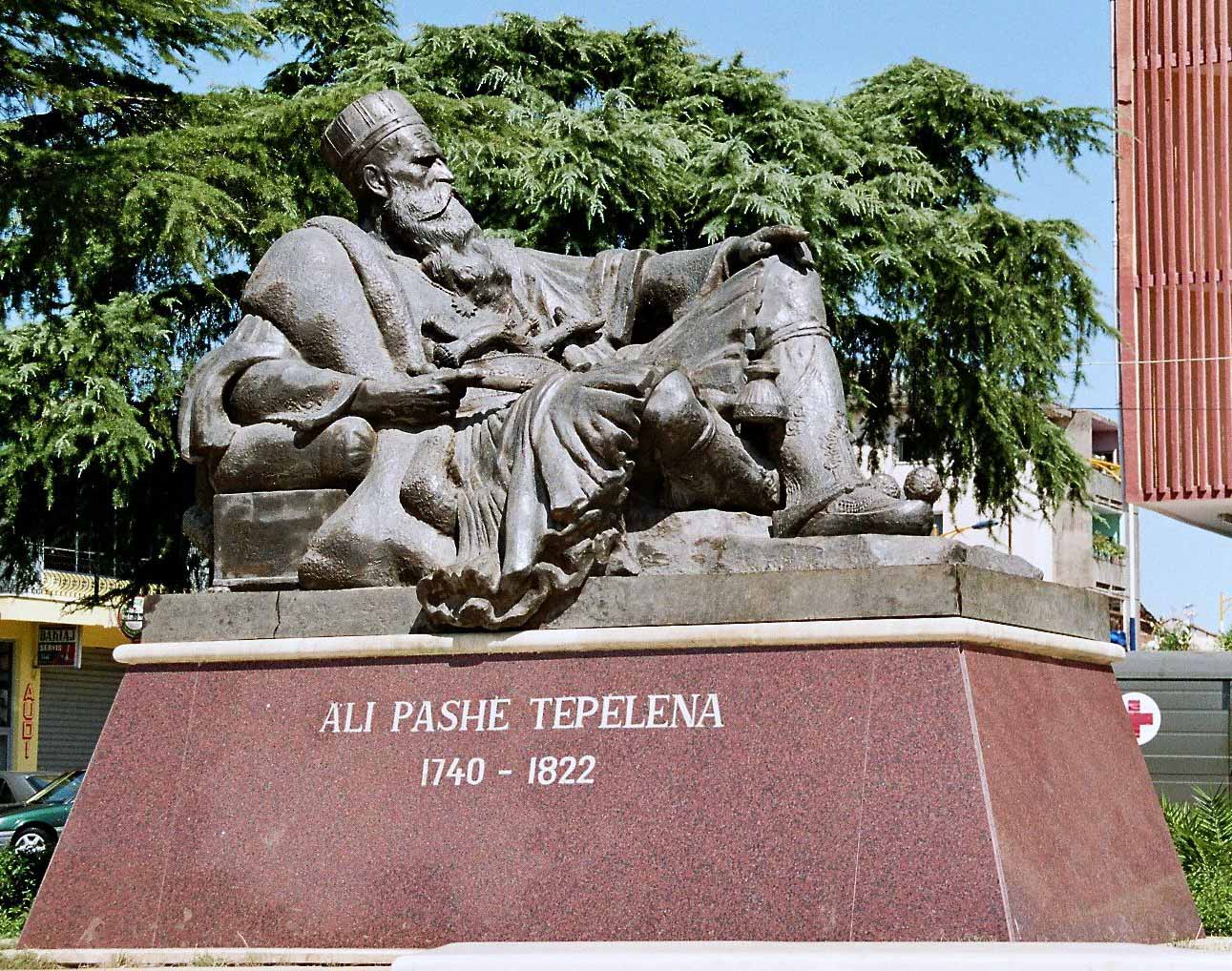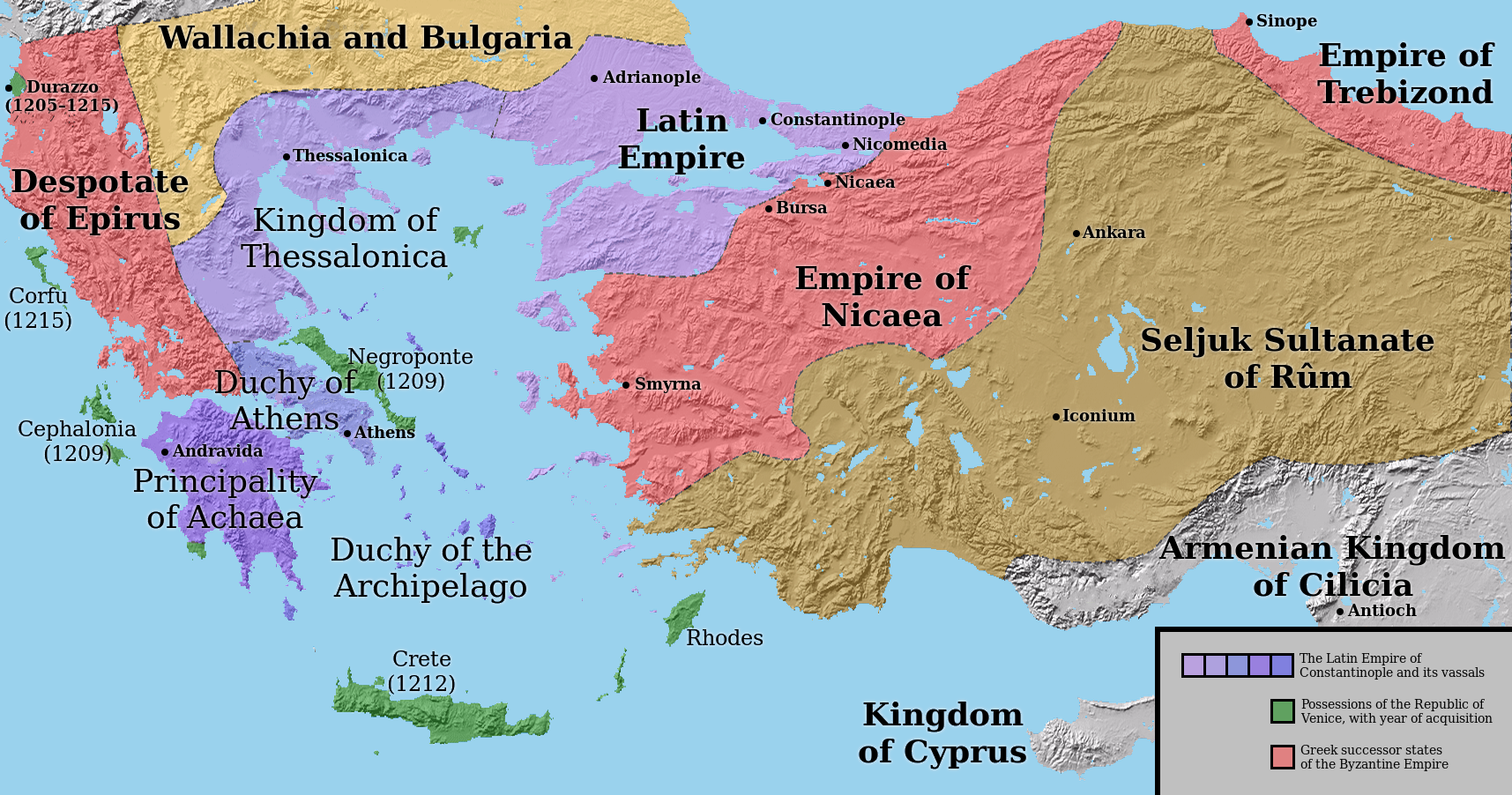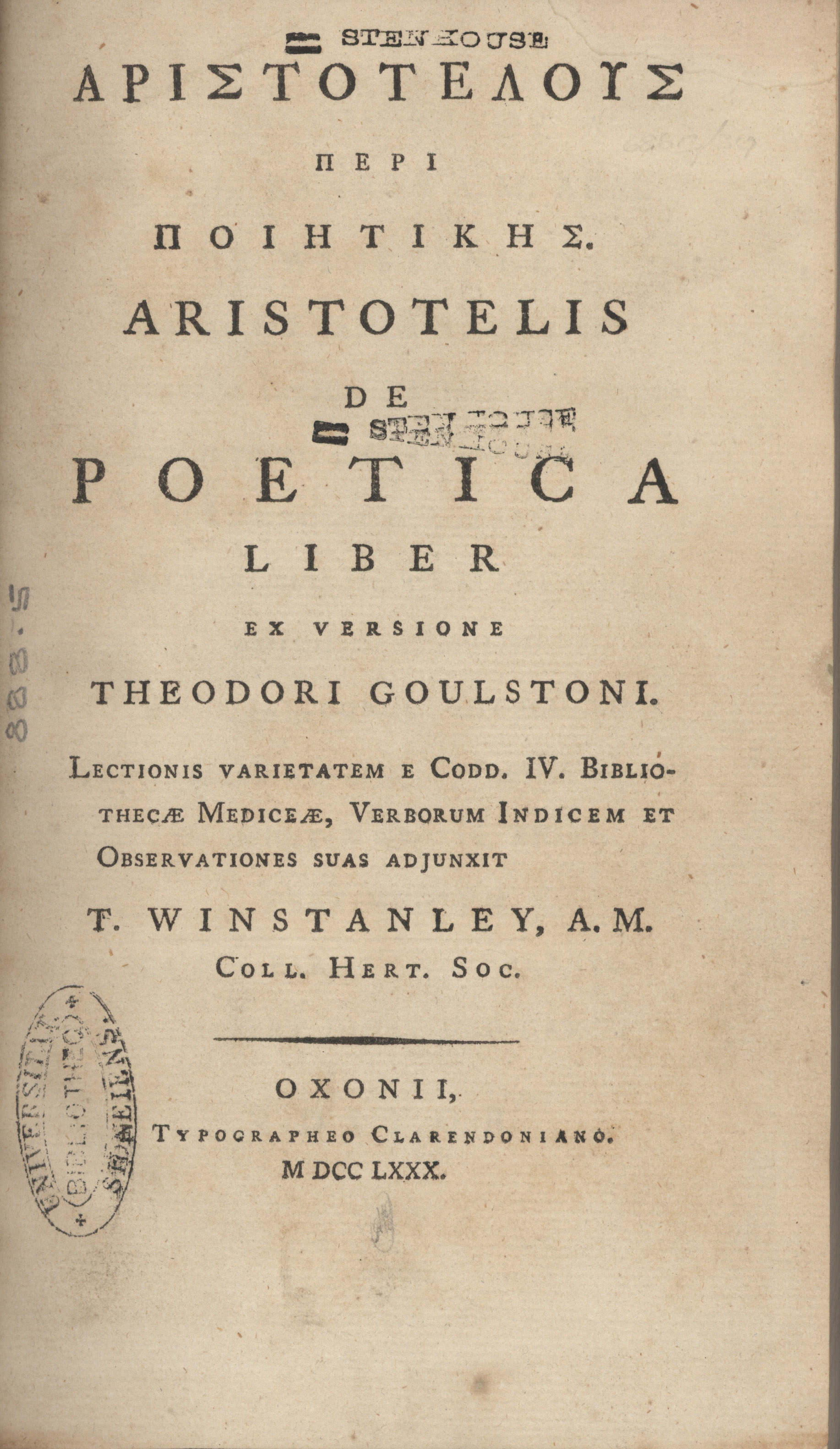|
Armatoloi
The armatoles (; ; ; ), or armatole in singular, were irregular soldiers, or militia, commissioned by the Ottoman Empire, Ottomans to enforce the sultan's authority within an administrative district called an armatoliki ( in singular, , in plural). In Ottoman Greece, Greek regions of the Ottoman Empire, they were composed of Greeks who were either former klephts or village stalwarts who had taken up arms against the klephts in the defense of their district. The Greek armatoles had a semi-independent status all over the Greek peninsula, and armatolikia were created in areas that had high levels of brigandage (i.e. klephts), or in regions that were difficult for Ottoman authorities to govern due to the inaccessible terrain, such as the Agrafa mountains of Thessaly, where the first armatoliki was established in the 15th century. Over time, the roles of the armatoles and klephtes became blurred, with both reversing their roles and allegiances as the situation demanded, all the while ... [...More Info...] [...Related Items...] OR: [Wikipedia] [Google] [Baidu] |
Greek War Of Independence
The Greek War of Independence, also known as the Greek Revolution or the Greek Revolution of 1821, was a successful war of independence by Greek revolutionaries against the Ottoman Empire between 1821 and 1829. In 1826, the Greeks were assisted by the British Empire, Bourbon Restoration in France, Kingdom of France, and the Russian Empire, while the Ottomans were aided by their vassals, especially by the Eyalet of Egypt. The war led to the formation of modern Greece, which would be expanded to its modern size in later years. The revolution is celebrated by Greek diaspora, Greeks around the world as Greek Independence Day, independence day on 25 March. All Greek territory, except the Ionian Islands, the Mani Peninsula, and mountainous regions in Epirus, came under Ottoman rule in the 15th century. During the following centuries, there were Ottoman Greece#Uprisings before 1821, Greek uprisings against Ottoman rule. Most uprisings began in the independent Greek realm of the Mani Pe ... [...More Info...] [...Related Items...] OR: [Wikipedia] [Google] [Baidu] |
Ali Pasha Of Ioannina
Ali Pasha (1740 – 24 January 1822), commonly known as Ali Pasha of Yanina or Ali Pasha of Tepelena, was an Albanian ruler who served as Ottoman pasha of the Pashalik of Yanina, a large part of western Rumelia. Under his rule, it acquired a high degree of autonomy and even managed to stay '' de facto'' independent. The capital of the Pashalik was Ioannina, which, along with Tepelena, was Ali's headquarters. Conceiving his territory in increasingly independent terms, Ali Pasha's correspondence and foreign Western correspondence frequently refer to the territories under Ali's control as "Albania." This, by Ali's definition, included central and southern Albania, and parts of mainland Greece; in particular, most of the district of Epirus and the western parts of Thessaly and Macedonia. He managed to stretch his control over the sanjaks of Yanina, Delvina, Vlora and Berat, Elbasan, Ohrid and Monastir, Görice, and Tirhala. Ali was granted the Sanjak of Tirhala in 17 ... [...More Info...] [...Related Items...] OR: [Wikipedia] [Google] [Baidu] |
Klepht
Klephts (; Greek κλέφτης, ''kléftis'', pl. κλέφτες, ''kléftes'', which means "thieves" and perhaps originally meant just "brigand": "Other Greeks, taking to the mountains, became unofficial, self-appointed armatoles and were known as klephts (from the Greek ''kleptes'', "brigand").") were highwaymen turned self-appointed armatoloi, anti-Ottoman insurgents, and warlike mountain-folk who lived in the countryside when Greece was a part of the Ottoman Empire. They were the descendants of Greeks who retreated into the mountains during the 15th century in order to avoid Ottoman rule.: "The klephts were descendants of Greeks who fled into the mountains to avoid the Turks in the fifteenth century and who remained active as brigands into the nineteenth century." Klepht bands also included many ethnic Albanians. They carried on a continuous war against Ottoman rule and remained active as brigands until the 19th century. The terms kleptomania and kleptocracy are derived fro ... [...More Info...] [...Related Items...] OR: [Wikipedia] [Google] [Baidu] |
Peloponnese
The Peloponnese ( ), Peloponnesus ( ; , ) or Morea (; ) is a peninsula and geographic region in Southern Greece, and the southernmost region of the Balkans. It is connected to the central part of the country by the Isthmus of Corinth land bridge which separates the Gulf of Corinth from the Saronic Gulf. From the late Middle Ages until the 19th century, the peninsula was known as the Morea, a name still in colloquial use in its demotic form. The peninsula is divided among three administrative regions: most belongs to the Peloponnese region, with smaller parts belonging to the West Greece and Attica regions. Geography The Peloponnese is a peninsula located at the southern tip of the mainland, in area, and constitutes the southernmost part of mainland Greece. It is connected to the mainland by the Isthmus of Corinth, where the Corinth Canal was constructed in 1893. However, it is also connected to the mainland by several bridges across the canal, including two submers ... [...More Info...] [...Related Items...] OR: [Wikipedia] [Google] [Baidu] |
Haag Carl - Greek Warrior - Google Art Project
Haag is a common Germanic place-name and personal name, which originally meant "hedge" or "fence", hence "enclosed area", such as a fenced hamlet, park or wood. Also Hagen, Hägen. Haag may refer to: Places *The Hague, in the Netherlands () *Several places in Germany: ** Haag, Upper Franconia in the district of Bayreuth, Bavaria (Postcode 95473) ** Haag an der Amper in the district of Freising, Bavaria (Postcode 85410) **Haag in Oberbayern in the district of Mühldorf, Bavaria (Postcode 83527) ** Haag (Oberpfalz), near Hemau, Bavaria (Postcode 93155) **Haag (Hunsrück), part of the community of Morbach, Rhineland-Palatinate (Postcode 54497) **Haag (Dachau), a village belonging to Altomünster in the district of Dachau, Bavaria (Postcode 85250) ** Schloss Haag, a castle near Geldern, NRW (Postcode 47608) ** Haag (Sinntal), a hill in Hesse *Several places in Austria: ** Haag am Hausruck, a market town in the district of Grieskirchen, Upper Austria (Postcode 4680) ** Haag, Austria, ... [...More Info...] [...Related Items...] OR: [Wikipedia] [Google] [Baidu] |
Frankokratia
The Frankish Occupation (; anglicized as ), also known as the Latin Occupation () and, for the Venetian domains, Venetian Occupation (), was the period in Greek history after the Fourth Crusade (1204), when a number of primarily French and Italian states were established by the on the territory of the partitioned Byzantine Empire. The terms and derive from the name given by the Orthodox Greeks to the Western French and Italians who originated from territories that once belonged to the Frankish Empire, as this was the political entity that ruled much of the former Western Roman Empire after the collapse of Roman authority and power. The span of the period differs by region: the political situation proved highly volatile, as the Frankish states fragmented and changed hands, and the Greek successor states re-conquered many areas. With the exception of the Ionian Islands and some islands or forts which remained in Venetian hands until the turn of the 19th century, the ... [...More Info...] [...Related Items...] OR: [Wikipedia] [Google] [Baidu] |
University Of Northern British Columbia
The University of Northern British Columbia (UNBC) is a university serving the northern region of the Canadian province of British Columbia. The main campus is located in Prince George, with additional campuses located in Prince Rupert, Terrace, Quesnel, and Fort St. John. Because of its northern latitude, UNBC is a member of the University of the Arctic. In the 2020–21 academic year, 4,253 students were enrolled at UNBC. In 2022, ''Maclean's'' magazine ranked UNBC as the number one university of its size in Canada, in the Primarily Undergraduate category. UNBC also finished first in the rankings in 2015 and 2016 and routinely finishes in the top three in its category. In 2023, UNBC placed second in its category. In 2007, the university obtained the trademark for "Canada's Green University". History In response to a grass-roots movement spearheaded by the Interior University Society, the Legislative Assembly of British Columbia established the university when it passed Bill ... [...More Info...] [...Related Items...] OR: [Wikipedia] [Google] [Baidu] |
Megleno-Romanians
The Megleno-Romanians, also known as Meglenites (), Moglenite Vlachs or simply Vlachs (), are an Eastern Romance ethnic group, originally inhabiting seven villages in the Moglena region spanning the Pella and Kilkis regional units of Central Macedonia, Greece, and one village, Huma, across the border in North Macedonia. These people live in an area of approximately 300 km2 in size. Unlike the Aromanians, the other Romance-speaking population in the same historic region, the Megleno-Romanians are traditionally sedentary agriculturalists, and not traditionally transhumants. Sometimes, the Megleno-Romanians are referred as "Macedo-Romanians" together with the Aromanians. They speak a Romance language most often called by linguists Megleno-Romanian or Meglenitic in English, and βλαχομογλενίτικα (''vlakhomoglenítika'') or simply μογλενίτικα (''moglenítika'') in Greek. The people themselves call their language ''vlahește'', but the Megleno-Roman ... [...More Info...] [...Related Items...] OR: [Wikipedia] [Google] [Baidu] |
Greek Language
Greek (, ; , ) is an Indo-European languages, Indo-European language, constituting an independent Hellenic languages, Hellenic branch within the Indo-European language family. It is native to Greece, Cyprus, Italy (in Calabria and Salento), southern Albania, and other regions of the Balkans, Caucasus, the Black Sea coast, Asia Minor, and the Eastern Mediterranean. It has the list of languages by first written accounts, longest documented history of any Indo-European language, spanning at least 3,400 years of written records. Its writing system is the Greek alphabet, which has been used for approximately 2,800 years; previously, Greek was recorded in writing systems such as Linear B and the Cypriot syllabary. The Greek language holds a very important place in the history of the Western world. Beginning with the epics of Homer, ancient Greek literature includes many works of lasting importance in the European canon. Greek is also the language in which many of the foundational texts ... [...More Info...] [...Related Items...] OR: [Wikipedia] [Google] [Baidu] |
Hamartia
The term ''hamartia'' derives from the Greek , from ''hamartánein'', which means "to miss the mark" or "to err". It is most often associated with Greek tragedy, although it is also used in Christian theology. The term is often said to depict the flaws or defects of a character and portraying these as the reason of a potential downfall. However, other critics point to the term's derivation and say that it refers only to a tragic but random accident or mistake, with devastating consequences but with no judgment implied as to the character. Definition ''Hamartia'' as it pertains to dramatic literature was first used by Aristotle in his ''Poetics''. In tragedy, ''hamartia'' is commonly understood to refer to the protagonist's error that leads to a chain of actions which culminate in a reversal of events from felicity to disaster. What qualifies as the error or flaw varies, and can include an error resulting from ignorance, an error of judgment, an inherent flaw in the chara ... [...More Info...] [...Related Items...] OR: [Wikipedia] [Google] [Baidu] |






